GBI Seminar Series
In 2020 the GBI EIP has launched a new event series – the Global Business Innovation Seminar Series. It comprises of workshops specifically designed for the needs of the various cohorts related to the platforms – Early Career Researchers (ECRs), Vice Chancellor Research Fellows, PhD students (HDRs) and academics from various schools of all RMIT colleges.

A Better Work Start: Impact of COVID-19 on Maritime Supply Chain and Post Pandemic Mitigation Strategies: Implications for Australia
On 2nd July we had another event within the RMIT ECP Post Covid-19 Restart initiative. It was organised in conjunction with the Australian Maritime Logistics Research Network (AMLRN) and led by Assoc. Prof. Vinh Thai. Watch the webinar here.
Past Event Reflections

We were delighted to offer an amazing opportunity at RMIT University to participate in the seminar ‘How to conduct experiments in business research’, presented by the talented and always generous generous Mario Kienzler from the Linköping University!
Mario took us through various experimental research designs, as well as his own experiences about the key opportunities and challenges that may emerge when conducting and publishing experimental research.
Some of the many interesting things we heard, include:
- Many of our theories in business and management are causal in nature, but traditional methods, like surveys and case studies, are only correlational;
- Key differences between laboratory, online, and field experiments;
- Ethical considerations that may come in play when conducting experiments;
- The focused nature of experiments makes them great for addressing managerial issues (A/B testing and yes/no type of questions);
- Don´t expect to succeed with one experiment only; expect to conduct (and supplement) multiple experiments over the course of a project.
We are grateful for Mario’s generosity with his time, staying beyond the scheduled finish time of the seminar to ensure all participants had an chance to pose questions in a rich and fruitful Q&A opportunity.
On 10 June 2020 the ECPs held their first roundatble as part of the newly launched ECP Post COVID-19 Restart Strategy.
Event summary
The impacts of COVID-19 are being felt across our society, in our medical system, businesses, social organisations, our economy, as well as the mental health and wellbeing of individuals. In this context RMIT with its partners will assemble cross disciplinary teams to analyse the critical issues in order both to influence the societal debate and to develop focused research-based interventions. These activities will look at five focal areas. For each “Start”, roundtables with industrial partners will initiate cross-disciplinary analysis of the critical issues involved. This will lead to a Briefing and a White paper to contribute to the societal debate and to define critical areas in RMIT and its partners to contribute.
To support our cross disciplinary analysis and planning in each start it is critical that our communities have an accurate, uniform and nuanced understanding of the range of scenarios that may unfold as our society begins to re-open after the COVID-19 closure. This roundtable provided that through presentations from leading players and experts in the field, which were followed by a moderated conversation.
The panellists and topics of discussion were:
- Prof Katie Flanagan - Head of Infectious Diseases Service, Launceston General Hospital. She talked about Health Scenarios. What are the different projections for the spread of virus and what do these require as a health response.
- Ms Emma King – Chief Executive Officer, Victorian Council of Social Service (VCOSS). She discussed Social scenarios. What are the projected virus scenarios likely to this mean for the disadvantaged and the institutions that support them and for our society as a whole.
- Ms Jane Cohen – Partner, Global Strategy Group, KPMG. She discussed Business scenarios. The impact of COVID-19 and impact to retail ranging from job changes, restructure of the sector and changes in use of shopping centres.
- Dr Amanda Caples – Victoria’s Lead Scientist, Victoria State Government. She discussed how the Medical scenarios may affect the government response and what her office view as the critical areas in Victorian business and society.
If you would like to view a recording of this event, please contact the AM & AMF ECP Operations Officer at jennifer.buhagiar@rmit.edu.au or the Global Business Innovation ECP Operations Officer at adriana.dimitrova@rmit.edu.au.
On 11 June 2020 Prof. Anne-Laure Mention and the Global Business Innovation ECP supported the first event within the Fairer Start Initiative within the ECP Post COVID-19 Restart Strategy. The event was moderated by the Deputy Dean R&I at the school of Accounting, Info Systems & Supply Chain, Prof. Nava Subramaniam.
Event summary
COVID-19 pandemic has put Australian charities and not-for-profit (NFP) entities at severe risk. Donor fatigue, government funding cuts, volunteer shortages due to social distancing policies, and more have led to breakages in human service supply chains, undermining organisational sustainability and service delivery to millions of people who depend on them.
This webinar addressed the emergent challenges for the governance and accountability of NFPs in a pandemic crisis, and discuss how NFP organisational resilience can be supported, including:
- leveraging data assets for business model and public policy innovations,
- building technology-enhanced service supply chains,
- accountability to service quality, and
- role of social enterprises for bridging the gap between affordability and service demand.
The panellists were:
- David Gilchrist - University of Western Australia
- Vinita Godinho - Financial Resilience Australia
- Mel Yates Australian Charities and Not-for-profit Commission (ACNC)
If you would like to view a recording of this event, please contact the Global Business Innovation ECP Operations Officer at adriana.dimitrova@rmit.edu.au.
A line up of external speakers were on hand to share how COVID-19 has impacted businesses within the transport and logistics sector, new technologies likely to change in the future post COVID-19 and what strategies businesses can adopt to build more operational resilience in the face of similar disruptions.
The panellist were:
- Mr Jonathan Bolton, General Manager consumer and retail, DHL – Victoria
- Mr Dave Coughlin, Branch manager, Mainfreight – Tullamarine
- Mr Nicholas O'Connell, Operations Production Manager, DP-World – Melbourne
Speakers also discussed ways for RMIT researchers to collaborate with industry and government in post COVID-19 recovery efforts.
In 2019 the GBI ECP held a series of events designed specifically for the needs of the HDR Cohort. HDR students from different schools in the College of Business were provided with the opportunity to meet with Prof. Anne-Laure Mention and discuss with her various matters related to collaboration opportunities, support activities and engagement with the GBI ECP.
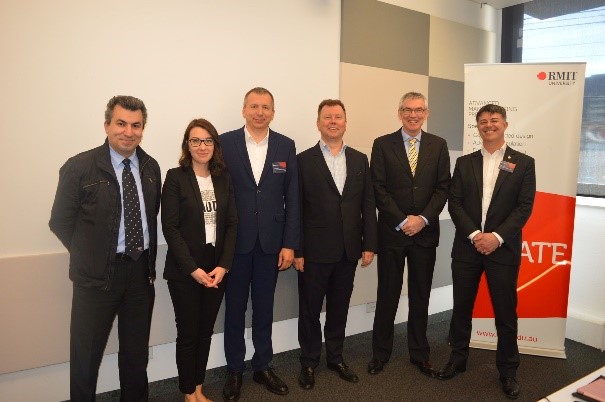
On 17 Sept 2019 Dr. Iryna Heiets hosted the first workshop on coopetition strategy for airlines, which was organised by the School of Engineering and Global Business Innovation ECP.
The aim of the workshop was to bring a new understanding of the perspectives of coopetition for airlines. It investigated how best to co-create and co-innovate in the industry, from both theoretical and practical perspectives. Researcher engagement was provided through collaboration in coopetition and innovation between researchers from European and Australian Universities. The practical component involved industry engagement events with professionals from the airline industry.
This workshop united scholars with different background and experienced practitioners. The invited lectures and speakers were Associated Professor at Sumy State University (Ukraine) Dr. Hanna Shvindina, Senior Lecturer in Aviation at RMIT University Dr. Iryna Heiets, Executive Manager Government, Industry & International Affairs of Qantas and Jetstar Rohan W. Garnett, CEO of Friendly Avia Support (Lithuania) Aleksandr Lanecki, Senior Industry Fellow at RMIT University Paul Fox, Director of FSF’s Basic Aviation Risk Standard (BARS) program David Anderson.
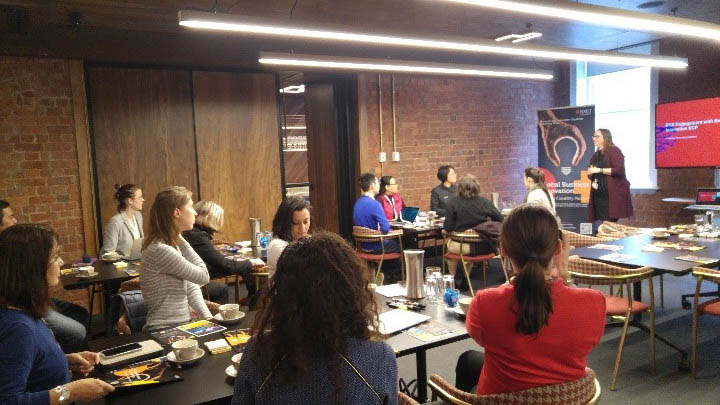
On 22 August 2019 we hosted a designated workshop to foster the engagement of Early Career Researchers with the Global Business Innovation ECP. The initiative is part of one the platform’s key focus areas in 2019 – ECR engagement.
The event was well-attended by representatives from all schools in the College of Business. As part of the workshop activities, they participated in a “brainswarming” session where they identified the challenges they face throughout their ECR journey. A discussion with Prof. Mention followed, where the ECRs outlined their suggestions for support and collaboration opportunities with the GBI ECP.
On 23 August 2019 the first Technological Roadmapping webinar took place. It was delivered by world leading institution on strategic technology roadmapping - Institute for Manufacturing (IfM), University of Cambridge, United Kingdom. It brought together curious and knowledge-hungry staff and HDRs across various RMIT colleges.
For details on this project, please contact Justyna.dabrowska@rmit.edu.au, VC Postdoctoral Research Fellow supported by the GBI ECP, School of Management.
On 2nd July we had another event within the RMIT ECP Post Covid-19 Restart initiative. It was organised in conjunction with the Australian Maritime Logistics Research Network (AMLRN) and led by Assoc. Prof. Vinh Thai.
On 30th July 2020, we held the third roundtable within the A Better Work Start initiative. It was led by Prof. Anne-Laure Mention and Prof. Ivan Cole and was another extremely successful event. We had a diverse audience from academia, industry and government and 4 distinguished speakers who presented highly engaging and interesting presentations, and contributed to a very fruitful panel discussion and a Q&A session with the audience.
We have already received a large number of excellent comments and reviews from the event, in particular on the multiple perspectives and insights provided by our speakers, which have created opportunities for further conversations and collaborations within the RMIT Community and our partners.

On Monday, 26 October 2020, we ran another very successful event within the A Better Work Start initiative. It was led by the Digitalisation Stream and its leaders Dr. Ben Cheng, Dr. Naomi Whiteside and Dr. Konrad Peszynski.
The session attracted over 60 participants from academia, industry and government, and a vibrant discussion ensued with the panel, exploring several key technologies and the opportunities and challenges they pose for businesses. The role people in the success of digital transformation was a key emerging theme, as was the workforce skill development necessary to provide technology support for businesses as they move toward a post COVID future.
The Digitalisation stream is now developing opportunities for collaboration and research in partnership with industry that will examine the themes uncovered from the session in greater depth.
If you are interested in getting involved, please get in touch with any of the stream leaders listed above.
You can view the event recording here.
Find out more about this event here.
On 15 October 2020 a roundtable of researchers and experts explored how Australian ethical and social enterprises strategically respond to COVID-19.
The event was held as part of RMIT's Enabling Capability Platform's 'A Better Work Start' initiative within the ECP Post COVID-19 ReStart program, enabling effective, resilient, ethical and responsible business for future workforces.
The roundtable was led by Dr Natalya Turkina from Graduate School of Business and Law and was supported by a team of academics including Assoc. Prof. Joona Keranen, Dr. Alena Golyagina and Apurva Sharma. They hosted an experienced panel of industry speakers who shared their insights. Together the presenters shared the key opportunities and challenges brought in by COVID-19, how their enterprises responded to these challenges and how their enterprises remain accountable to their stakeholders.
It was an extremely successful event and we had approx. 70 attendants from academia, industry and government. The speakers presented highly engaging and interesting presentations, and contributed to a very fruitful panel discussion and a Q&A session with the audience. The conversation brought up some very important and insightful topics for discussion and created opportunities for further collaboration activities.
You can view the event recording here.
You can read an event summary in the provided file here.
Find out more about this event here.
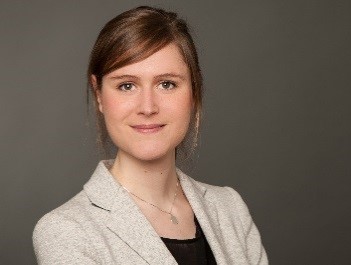
The visiting PhD candidate Pauline Reinecke from Hamburg University of Technology kicked off the 2020 Global Business Innovation (GBI) Seminar Series on 3 March 2020. Presenting to a diverse audience comprised of HDR students and academics, Puline talked about how she derived different research projects on Big Data Analytics.
Pauline is currently a PhD student and Research Assistant at the Hamburg University of Technology (TUHH). She did a Secondment at RMIT from January 15 to March 15, 2020 in the course of the OpenInnoTrain Project. She pursues research in the context of Big Data and Analytics, focusing on the strategic opportunities and risks for organisations, as well as the impact Big Data and Analytics has on strategic decision processes and organizations from a socio-technical systems perspective.

On 19 March 2020 visiting academic Dr. Saema Saeed delivered to the to the RMIT community one of the first RMIT online seminars during the Covid-19 pandemic.
She presented her current research on a link between maritime connectivity, port competitiveness, and economic growth. The audience gave constructive feedback, and based on their suggestions, Dr. Saeed and colleagues at RIMT agreed to work on two joint research projects. In these projects, they will analyse the restructuring of the global maritime supply chain in response to changes in bilateral maritime connectivity and China's belt and road initiative (BRI). During the seminar, Dr. Saeed and academic staff at RMIT also discussed the different funding opportunities to extend their research collaboration.
Naima Saeed is an Associate Professor of Supply Chain Management at the School of Business and Law at the University of Agder (UiA), Norway, and a visiting scholar at the Royal Melbourne Institute of Technology (RMIT), Melbourne, Australia.
The purpose of her research visit to RMIT was to collaborate with well-known researchers and professors in the field of logistics and maritime economics at RMIT. Currently, she is working with colleagues at RIMT on a project related to sustainability of Australian ports.

GBI ECP and the Graduate School of Business and Law organised an online research seminar on 2 June 2020 that focused on the role and suitability of the ecosystem analogy in business research and practice.
The seminar speaker was one of the leading scholars in the contemporary innovation and coopetition field, Professor Paavo Ritala from the School of Business & Management in LUT University Finland. Prof. Ritala is a research-active scholar with +100 publications, +5500 citations (google scholar), and H-index of 38, and serves as an Associate Editor of R&D Management (ABDC A-ranked).
The online seminar was very successful and included a varied audience from RMIT, which contributed to a very active discussion on the usage of ecosystem analogies in different areas of research.
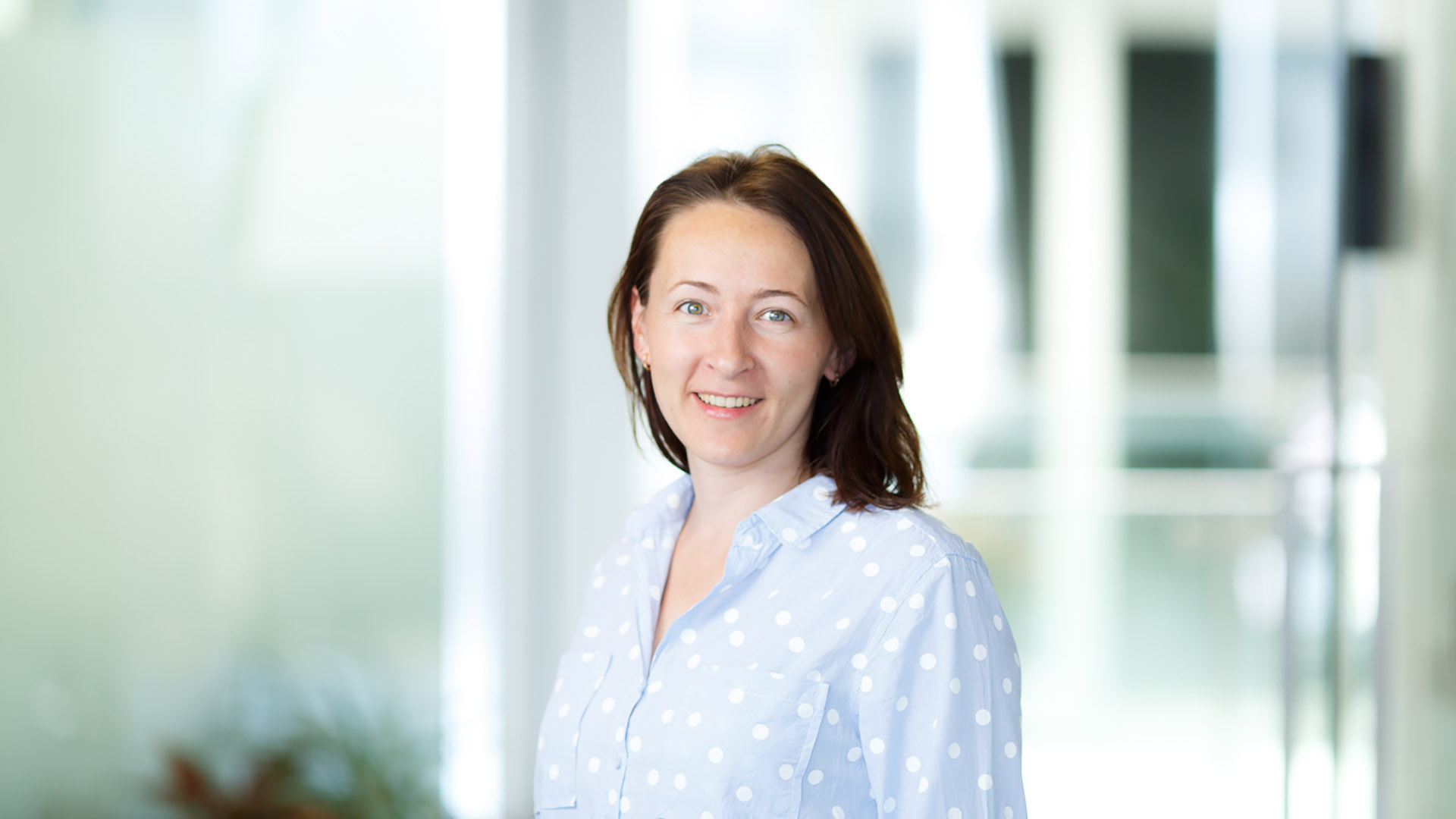
On the 20 August 2020 Dr. Natalya Turkina from the Graduate School of Business and Law presented her paper "How institutional logics shape place-and organisation-specific resource dependencies in mining partnerships? A case study of a mining MNC in Australia and Mongolia", which she is currently finalising to be submitted to the Journal of Business Ethics' Special Issue "Putting Partnerships in their Place: Moral and Material Processes of Place-based Respect, Repair, and Renewal".
The paper presentation was followed by an engaging discussion with the audience who asked critical and in-depth questions, and provided Dr. Turkina with a very valuable feedback. Special thanks go out to Dr Brian Coffey, a Vice-Chancellor's Research Fellow in the Centre for Urban Research for suggesting that looking at not only dominant but also secondary institutional logics is important in Dr. Turkina's study. Another valuable feedback was provided by Leigh Fisher, a PhD student at the School of Education and a former partnerships manager for private development agency in India. Leigh has kindly complemented Dr. Turkina's framework, commenting on its practical implications, and suggested that extending her research on cross-sector partnerships in the Indian context would extend her theory, as India is full of idiosyncratic cases that are worth researching.
Overall, it was a successful and engaging webinar and Dr. Turkina is keen to run similar events in the future where she could present other papers she is currently working on.
You can watch the event recording here.
You can find more details about the event here.

On 3rd September 2020 Dr Janne Korhonen, a RMIT Visiting Academic from Aalto Univeristy, Finland, held the next session of the event series.
The webinar appreciated innovation as a multi-level, multi-dimensional process, whose stages can be seen along different value dimensions. Each value dimension adds a new perspective to innovation and entails a new level of innovation capability that is needed to address a progressively more complex and dynamic context. The webinar provided new vistas into the structure of innovation, the development of innovation capability in organisations, and the leadership requirements at different levels of innovation.
Dr. Korhonen's presenatation was followed by a fruitful discussion with the audience. The event was attended by a varied audience, which included RMIT academics from Melbourne and Barcelona, PhD students and external partners.
The webinar was moderated by Massimo Menichinelli who is a Research Fellow at RMIT Europe.
You can watch the event recording here.
You can find more details about the event here.
On Monday, 26th of October a multidisciplinary team of RMIT researchers hosted a virtual workshop exploring how digital technology had supported businesses through COVID-19 and beyond. The workshop entitled, COVID-19 and rapid digital transformation: opportunities, challenges and next steps, was part of the RMIT Enabling Capability Platform (ECP) Post COVID-19 initiatives, Digitalisation Stream. A recording of the event is available online and you can find out more about the RMIT Enabling Capability Platform Post COVID-19 Restart initiatives here.
Professor Rachel Caruso, Director of the Advanced Materials ECP, provided an overview of the Post COVID Initiatives and the work of the Digitalisation Stream to open the event. The session was facilitated by Dr Naomi Whiteside who has led the Digitalisation Stream with her colleague’s Dr Ben Cheng and Dr Konrad Peszynski. They were supported by colleagues from the Digitalisation Stream: Dr Mladenko Kajtaz, Dr Jeffrey Chan, Associate Professor Victor Gekara, Professor Ivan Cole and Professor Anne-Laure Mention. Closing remarks were provided by Professor Mark Sanderson, Director of the Information and Systems Engineering ECP.
Four presentations from industry and academic experts explored how businesses have undergone digital transformation during COVID-19 and how technology can support a post COVID recovery:
- Industry 4.0 research and opportunities for future collaboration, Dr Ben Cheng, Senior Lecturer, RMIT Manufacturing, Materials and Mechatronics
- he Factory in a Box: Delivering Low Cost, Low Skill, Low Risk Industry 4.0 Capability During a Global Pandemic, Dr Steve Dowey, Technology Manager, Sutton Tools and RMIT Senior Industry Fellow
- Digital Transformation: Intelligent Automation, Dr Amirali K Gostar, Lecturer, RMIT Manufacturing, Materials and Mechatronics
- How Augmented Reality is Enabling Business Continuity Now and Beyond COVID-19, Allan Thompson, PTC Technical Manager and Paul O’Shaughnessy, PTC Business Manager, LEAP Australia
The session attracted over 60 participants and a vibrant discussion ensued with the panel exploring several key technologies and the opportunities and challenges they pose for businesses. The role people in the success of digital transformation was a key emerging theme, as was the workforce skill development necessary to provide technology support for businesses as they move toward a post COVID future. The Digitalisation team is now developing opportunities for collaboration and research in partnership with industry that will examine the themes uncovered from the session in greater depth.
This seminar was organised by the Global Business Innovation Enabling Capability Platform together with the GSBL Research Incubator on Wednesday 31 March 2021 (12.00pm - 01:30pm) and offered an open invitation as was showcased as being equally beneficial to both junior and more senior researchers.
The seminar attracted academics interested in organisational trust, multi-level analyses, and meta-analysis as a research methodology. It was led by Associate Professor Bart de Jong, who is an experienced research method enthusiast and an Associate Editor in Academy of Management Journal (AMJ) and facilitated by Dr. Joona Keränen, Associate Professor, Vice Chancellor's Senior Research Fellow, Graduate School of Business & Law, RMIT University.
This event offered an 'appetiser' to a dedicated workshop on the actual methods of meta-analysis, which Assoc. Prof. de Jong plans to organise with RMIT, at a later date.

On 4 May 2021 Dr. Austin Chia, The University of Melbourne, presented the nascent concept of 'CSR for Happiness' which contends that corporations – and businesses more generally – have a social responsibility to respect, preserve, and advance people's right to, and experience of happiness. As a humanist and normative concept, CSR for Happiness recognises the influential role that businesses play in shaping the subjective experiences of those to whom they are connected and frames happiness as a social outcome of business activity. This presentation introduced an integrative conceptual framework of CSR for Happiness, which included the macro‐to‐micro and micro‐to‐macro pathways through which corporations directly and indirectly impact upon societal happiness. Using a contractarian lens of CSR, empirical findings of public expectations regarding businesses' social responsibility for happiness is reported to evaluate the legitimacy of the concept.
Austin's presentation was followed by a lengthy discussion around the concept of 'CSR for Happiness' with attendees thanking Austin for his excellent research and acknowledging his ability to present the research in a very clear and engaging way.
Presenter Bio - Dr. Austin Chia: Austin completed his PhD in Organisational Behaviour and Positive Psychology at The University of Melbourne and is currently an Associate Lecturer in the Faculty of Business and Economics at the same institution. Austin has published numerous journal articles and book chapters on his core research areas of (1) the boundary-spanning effects of business activities on societal wellbeing, and (2) occupational conditions that enable employees to flourish, establish meaningful work lives, and perform optimally. Prior to joining academia, Austin worked as a management consultant in the public and private sector for over a decade.
Dr. Natalya Turkina, Vice-Chancellor's Postdoctoral Fellow, Graduate School of Business & Law, RMIT, organised this seminar on behalf of the GBI ECP Seminar Series.
You can read the document from the seminar here. Credit: Melbourne University document, shared with permission.
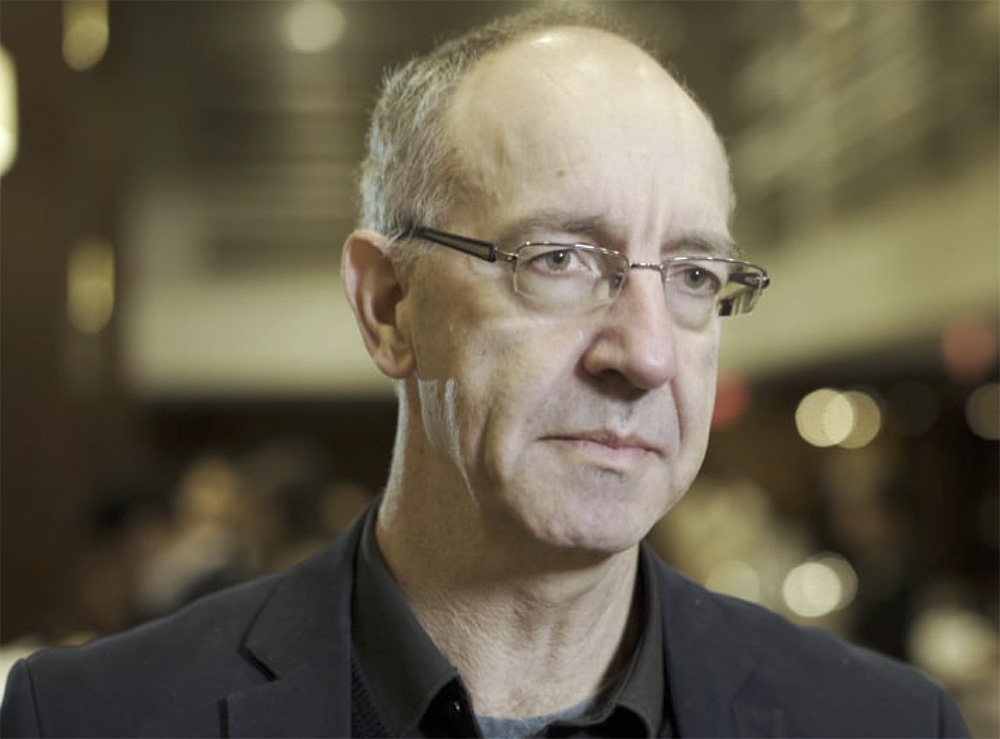
GSBL and GBI ECP had a great pleasure to host an Associate Professor Anton Kriz from ANU on May 25. This session was open to all interested RMIT staff and HDR students who were keen to learn about action-based research and its use in practice to put more meaning into research and teaching practices while getting better outcomes.
Anton delivered an insightful presentation on bridging academia and industry through action research and action learning. Anton's expertise is unique in producing high quality research outputs combined with practical outcomes. He published several papers on how scholars can effectively and efficiently apply action research to their domain. In particular, his presentation and papers can help scholars to think how both rigour and relevance can be sought through and obtained (see below):
Kriz, A., Nailer, C., Jansen, K., & Potocnjak-Oxman, C. (2021). Teaching-practice as a critical bridge for narrowing the research-practice gap. Industrial Marketing Management, 92, 254-266.
Guertler, M. R., Kriz, A., & Sick, N. (2020). Encouraging and enabling action research in innovation management. R&D Management, 50(3), 380-395
Dr. Olga Kokshagina, Assistant Professor and Vice Chancellor's Research Fellow in the Graduate School of Business and Law at RMIT University, organised this event on behalf of the GBI ECP Seminar Series.

On 3 June 2021 Dr. Graham Dwyer, Director of Graduate Programs at the Centre for Social Impact at Swinburne University of Technology, presented his Team's research on post-inquiry sensemaking by emergency management practitioners following an inquiry into the most damaging bushfire disaster in Australia's history. Graham showcased a theorised model of post-inquiry sensemaking with four distinct but overlapping phases during which sensemaking becomes more prospective over time. In addition, to providing important insights into what has, hitherto, been a neglected arena for sensemaking studies, i.e. post-inquiry sensemaking, Graham demonstrated how the research contributes to the understanding of sensemaking more generally. The complex nature of the relationship between sensemaking and equivocality, was identified, explaining how multiple frames enhance sensemaking, and explored temporality in sensemaking over time.
Graham's presentation was followed by an engaging discussion around the meaning of sensemaking and royal commissions more broadly. There was also some conversation around how to understand the factors in a community that incentivise the application of "good" sensemaking as well as how the learnings from this research could be applied to the COVID context.
Dr. Natalya Turkina, Vice-Chancellor's Postdoctoral Fellow, Graduate School of Business & Law, RMIT, organised this seminar on behalf of the GBI ECP Seminar Series. Natalya closed with an open-invitation for Dr. Dwyer to return at some point in the future to share again about this interesting and important research.